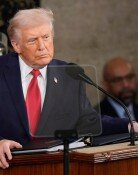[Opinion] Public Goods
Public goods refer to backbone infrastructure or services that a central or a local government provides to its people for the sake of public convenience, such as highways, roads, national parks, traffic signs and light. And they have two unique natures. First, they are open to everybody unlike apartments built by businesses and sold to certain people. When demand for apartments in certain areas rises, prices soar and supplies fall short. Public goods, however, are consistently managed by a government so that a larger number of people access and use them.
▷International political scientists see the current global system as a hegemonic dominance by the U.S. The hegemon plays a role of a legitimate government for the international community. By leveraging its dominant military power and public goods, it is seeking to maintain the current international order that well serves its national interest. Public goods representing the U.S.-led global system are the International Monetary Fund (IMF), the World Bank and the World Trade Organization (WTO). Along with U.S. greenback, they serve as effective tools that maintain the present world order. On the military side, there are public goods such as the North Atlantic Treaty Organization (NATO) and the U.S.-Japanese alliance and the Korean-U.S. alliance. By playing a leading role in providing these public goods, the U.S. has been able to maintain the global order that legitimates its dominance.
▷A democratic government goes through a due process such as a public hearing when it tries to build new backbone infrastructure. It believes that chances of winning the next election get higher when they provide public goods by listening to peoples voices. Likewise, the U.S. must know that it can drum up support and prolong the present global order by offering public goods that are in line with public opinions of the rest of the world.
▷Many in the world realized the threat of terrorist attacks in the wake of the Sept. 11 incidents. Then the war against terror, the U.S.-led campaign aimed to root out terrorist cells and prevent proliferation of weapons of mass destruction, can be deemed as a kind of public goods in the world dominated by U.S. hegemonic power. The Bush administration is now eager to add to its list of public goods a war against Iraq. But the world is apparently against the plan. Even 33 prominent political scientists in the U.S. recently issued a statement opposing the war in the New York Times on September 26. Public goods that ignore public opinions are bound to fail. And the world is closely watching what the future of the hegemonic country seeking such a failure will be like.
Kim Woo-sang, Guest Editorial Writer, Professor of Politics at Yonsei Univ.





![[단독]폴란드, 韓 해군 최초 잠수함 ‘장보고함’ 무상 양도 안받기로](https://dimg.donga.com/c/138/175/90/1/wps/NEWS/IMAGE/2026/02/27/133437397.1.jpg)
![[속보]“하메네이 사망” 트럼프 공식 발표…“일주일간 폭격할 것”](https://dimg.donga.com/c/138/175/90/1/wps/NEWS/IMAGE/2026/03/01/133441418.1.jpg)
